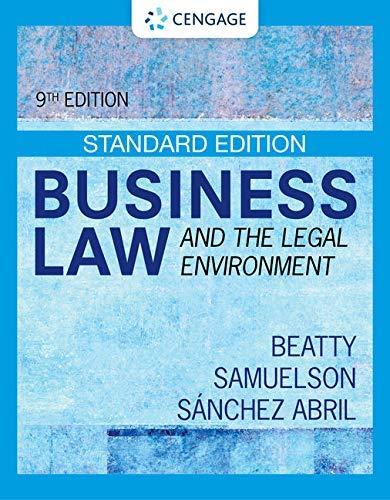Question
Reply to this discussion 1. Summary of Facts: In this case, the policeresponded to a report of a rape in a rural area of North
Reply to this discussion
1. Summary of Facts: In this case, the policeresponded to a report of a rape in a rural area of North Carolina. Upon arrival, the grandmother of the 66-year-old victim told the officers that "the law has come to search" and gave them permission to enter the house. The officers then searched the house and found a rifle, which was later used as evidence against the defendant, Bumper, in his trial for rape.
2. Essential Issue: The essential issue in this case was whether the grandmother's consent to search the house was valid, given that she had previously been told by the officers that they had a search warrant, even though they did not actually have one.
3. Holding: The Supreme Court held that the grandmother's consent to the search was not valid, and therefore the rifle found during the search should not have been admitted as evidence against Bumper.
4. Rationale for the Ruling: The Court reasoned that when the police claim they have a warrant, the consent given by the homeowner is not voluntary, but rather is "acquiescence to a claim of lawful authority." The Court stated that "When a law enforcement officer claims authority to search a home under a warrant, he announces in effect that the occupant has no right to resist the search." Therefore, the grandmother's consent was not freely given, and the search was unconstitutional under the Fourth Amendment.
Source: Bumper v. North Carolina, 391U.S. 543 (1968).
Step by Step Solution
There are 3 Steps involved in it
Step: 1

Get Instant Access to Expert-Tailored Solutions
See step-by-step solutions with expert insights and AI powered tools for academic success
Step: 2

Step: 3

Ace Your Homework with AI
Get the answers you need in no time with our AI-driven, step-by-step assistance
Get Started


